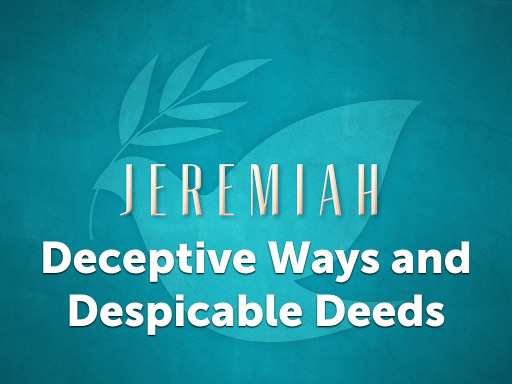Deceptive Ways and Despicable Deeds

In Jeremiah's most famous sermon, his Temple Sermon, God calls his people to repent of their Deceptive Ways and Despicable Deeds.
Introduction:
Deceptive Ways
The Deception of Outward Religion
The Deception of Compromised Religion
Despicable Deeds
The Oppression of the Defenseless
The Shedding of Innocent Blood
The American Idols: Personal Peace and Prosperity
Personal peace means just to be let alone, not to be troubled by the troubles of other people, whether across the world or across the city—to live one’s life with minimal possibilities of being personally disturbed. Personal peace means wanting to have my personal life pattern undisturbed in my lifetime, regardless of what the result will be in the lifetimes of my children and grandchildren. Affluence means an overwhelming and ever-increasing prosperity—a life made up of things, things, and more things—a success judged by an ever-higher level of material abundance.
It is stupid because such people have traded in their beautiful humanity for sawdust and ashes—for broken homes, for abortions, for starved children, and for old people locked away and even destroyed. Being a person has infinitely greater rewards for those who will consciously concentrate on being people—warm and loving people—rather than on their personal peace and affluence.
We challenge you to be a person in this impersonal age. Be human in this inhuman age. Put the people in your life first—whether perfect or marred. This is your once-in-a-lifetime chance of being “people with people.” Come to your senses. You and those around you are people, made in the image of the personal God who created all people in His image.
